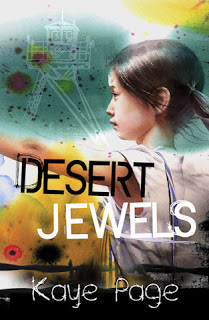by
Kathryn Page Camp
Middle-grade
fiction is adult fiction written for a younger audience. In other words,
middle-grade readers expect the same tightly written story, gripping plot, and
believable characters that adults do. So don’t attempt to write middle-grade
fiction unless you are willing to learn the techniques used by respected authors
who write for grown-ups.
What are these
techniques? Here is a partial list.
· Hook
the reader at the very beginning (the first sentence, paragraph, or page).
· Use
a consistent point-of-view. Even if there are several POV characters, make the
POV consistent within a scene.
· Show,
don’t tell.
· Give
the protagonist and other major players distinctive personalities and individual
character arcs.
· Ensure
that your main plot has rising stakes and plenty of conflict and tension. Middle-grade
readers can handle a lot of bad news (think Harry
Potter).
· Write
natural-sounding dialogue that doesn’t copy actual speech (e.g., avoid words
like “um,” pauses, and meaningless words and phrases unless they convey
something about the character or the action).
· Eliminate
unnecessary description, dialogue, and action. If it doesn’t add something
vital to the story, cut it out.
· Write
with strong nouns and verbs (avoiding most adjectives and adverbs).
· Trust
your readers (e.g., don’t tell readers what they can figure out for themselves).
· Provide
a satisfying ending. Surprises are good, and the reader doesn’t have to see it
coming. But the reader should be able to look back with hindsight and say, “of
course.”
Look for writers’
conferences and online classes that teach these principles. And since they are
the same for older audiences, you aren’t limited to conferences and classes geared
to middle-grade authors.
Obviously, there
are a few differences between adult and middle-grade fiction, but they don’t
apply to the actual techniques. For information on how to gear a story to the
right age audience, check out the IWC blog posts from August 1, August 9, and August 16, 2017.
As Madeline L’Engle said, “a children’s book must be,
first and foremost, a good book, a book with a young protagonist with whom the
reader can identify, and a book which says yes to life.”
So if you want to write one, first learn the basics of
writing fiction for adults.
__________
Kathryn Page Camp
is a licensed attorney and full-time writer who writes adult non-fiction as
Kathryn Page Camp and middle-grade fiction as Kaye Page. Writers in Wonderland: Keeping Your Words Legal was a Kirkus’ Indie Books of the Month
Selection for April 2014, and her first middle-grade historical novel, Desert Jewels, was released in August
2017. You can learn more about Kathryn at www.kathrynpagecamp.com.


No comments:
Post a Comment